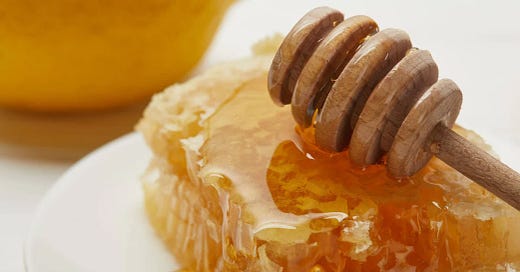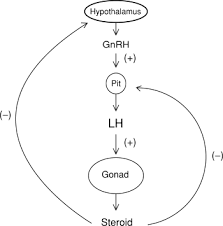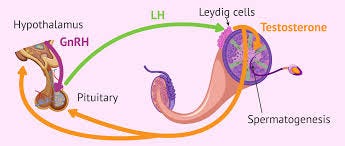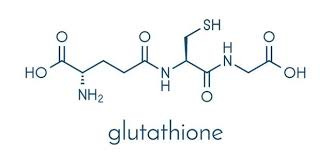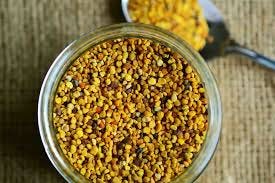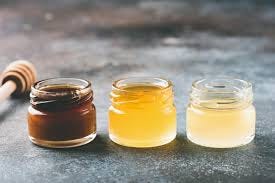"Boost Your Testosterone with Nature’s Sweetener: Honey"
What is honey?
Honey is a natural, sweet substance produced by bees from the nectar of flowers and acts as a long term food source for bees. This whole process begins when a bee collects nectar, which the bees then break down into sugars (via the enzymes in their stomachs). The nectar is then placed into honeycomb cells where the nectar eventually hardens and become then final result of honey. Honey has been consumed for thousands of years and has multiple health benefits which helps to elevate oneself.
What is Testosterone?
Testosterone is an anabolic steroid and is the main male sex hormone. The production/process of testosterone begins and is controlled by the hypothalamus gland located in the brain. The hormone that is secreted from this then stimulates the pituitary gland in the brain, the signal signifies for our body to produce a hormone which is release into the blood. This signal reaches the liver, and then it makes its way down to the testicles which is what produces testosterone.
What do studies show?
Some studies have shown that honey increases the production of a hormone called Luteinising Hormone, which is a hormone that increases and improves the viability of the Leydig Cells. The production of luteinising hormone helps to reduce oxidative damage in the Leydig Cells - this helps to increase the stAR gene expression and helps to decrease the activity of Aromatase in the testes.
Studies have shown that testosterone is not only linked as the controller of male reproduction, but, it also has a very important impact on the overall health of men.
What is Aromatase?
Aromatase is a hormone which converts testosterone the estrogen and is activated by the hormone called Cortisol, aka stress. This will obviously decrease mans testosterone levels thereby decreasing his masculinity.
What are Leydig Cells?
Leydig Cells are cells located in the testes that produce testosterone, the male sex hormone
Where do we find low levels of Testosterone?
Low levels of testosterone can be found in men that are ageing, that have disorders and diseases such as cancer, Alzheimers, infertility, diabetes and much more. Furthermore, if you are depressed, suffer from fatigue and are constantly anxious, this also has sufficient (negative) effects on testosterone levels. To add, when men age, their production of testosterone and levels of free testosterone reduces. Study 1, Study 2
What makes Honey a Superfood?
As I previously mentioned, honey is a food source that has been consumed for in the diet of man for thousands of years. Honey is mainly made up of glucose, fructose and other sugars as well as, amino acids, enzymes and vitamins such as, Thiamine, Riboflavin, Zinc, Magnesium, Phosphorus. It also has a rich content of minerals such as, Zinc. Magnesium, Calcium, Iron, Manganese, Copper, Phosphorus amongst other substances.
I mean, this list of vital vitamins, minerals, enzymes etc. of what makes up honey is enough, i believe, to somewhat comprehend that honey is more then just a food, it is a SUPERFOOD that has essential healing properties.
Furthermore, honey is also rich in antioxidants such as flavonoids and phenolic acids. Study 3, Study 4
What are Flavonoids and Phenolic Acids?
Flavonoids are a group of active compounds that are antioxidants and they are anticancer, anti-inflammatory and contain antiviral properties.
Phenolic Acids help to inhibit enzymes that are associated with the development of human diseases.
What potential affect does Honey have on the body via test results?
Honey has been shown to have a direct affect on Luteinising Hormone aka Lutropin, which acts on cells located within the testes. But what does this do? Well, this helps to convert Lutropin into Androstenedione, which is a steroid hormone that converts into testosterone. Therefore, Serum Testosterone levels are hence, increased.
A study on rats took place. The rats in this study were given 1g or honey a day for 40 days. Their luteinising hormone was up-regulated. What does this mean? This meant that there was increase in their testosterone. Furthermore, another study shows that honey was shown to improve the testicular damage (induced by cigarette smoke), as it benefits normal testicular tissue, which has a positive influence on the production of testosterone.
What is Luteinising Hormone, Androstenedione and Serum Testosterone?
Luteinising Hormone is a hormone that plays a key role in the reproductive system. This hormone is produced in the Pituitary Gland.
Androstenedione is an anabolic steroid which is made naturally in the body. As i briefly explained, it converts into testosterone.
Serum Testosterone is testosterone located within the blood.
The affects of antioxidants found in honey
The antioxidants that are found in honey has been shown to increase the production of testosterone. But why is this? Well, this is because oxidative stress damages cells, when this oxidative stress occurs within the leydig cells, within the testes, it reduces testosterone synthesis. However, due to the richness of the antioxidants in honey, it helps to improve the overall performance of the leydig cell as well as the production testosterone as the antioxidants work as a defensive mechanism for the leydig cells - enabling for them to be able to produce testosterone sufficiently.
Honey also contains phenols, boron and nitric oxide. What is the importance of these three? They help to increase antioxidants activity which, as we have covered, protects cells that produce testosterone. To add, they also increase blood flow to the testicles. All of this results in an increase in the activity of testosterone and an increase in DHT - This ultimately leads to a greater increase in muscle growth, strength, facial hair & sexual performance.
What is Oxidative Stress?
Oxidative stress is where there is an imbalance of antioxidants and free radicals within your body, which leads to oxidative stress and can lead to serious health problems.
Read my post on Antioxidants to find out more!
What is Chrysin and how does it boost Testosterone?
Chrysin is a flavonoid found in honey which has an important list of benefits, such as. being anticancer, anti-inflammatory as well as being an antioxidant. A study supplied the fact that when chrysin was supplemented for for 2 months, it increased the testicular level of Glutathione as well as the activity of antioxidant enzymes. Chrysin was also shown to diminish the enzyme aromatase (an enzyme which converts testosterone to estrogen when cortisol is present). When chrysin was consumed regularly with good amount of doses, it showed that it boosted testosterone. Finally, chrysin was shown to also up-regulate the stAR gene (Steroidogenic Acute Regulatory Protein), which helps to facilitates the transporting of Cholesterol (precursor to the production of testosterone) and leads to an increases of testosterone synthesis, stemming from the outer and internal mitochondrial membrane. Finally, chrysin has been shown to stop converting testosterone to estrogen via aromatase, and it maintains high testosterone in blood.
What is Glutathione?
Glutathione is a substance made from amino acids like glycine. It is a very important antioxidant for our liver and all of our cells and is also produced in the liver. It helps to cleanse and repair the liver as it’s the detoxification function of the liver. It is also good for detoxing against heavy metals like mercury, protects mitochondria, cancer prevention as well as tissue building and repairing (exercise fatigue) and the function of the immune system.
What is stAR Gene (Steroidogenic Acute Regulatory Protein)?
The stAR Gene is a protein that regulates the production of steroid hormones.
Are there other bee products that can boost Testosterone levels?
Well, you’re in luck! Because there are 3 other bee products that do increase testosterone in men, these 3 bee products are:
Bee Pollen
Royal Jelly
Bee Bread
Bee Pollen is the pollen the bees collect from the flower, along with nectar and saliva that bees produce that bees store within their hives. If you watch a bee very closely, you can actually see the pollen being stored underneath the top part of their legs. You may get even luckier, as I have, and see the pollen fall off from their legs. Not so lucky for the bees. Bee pollen is rich in vitamins and minerals as well as proteins and polyphenols. Bee pollen helps to boost testosterone, sperm count and sperm fertility. It also helps to increase the antioxidant activity.
Royal Jelly is a substance produced by honey bees that the Queen bee consumes. It is made up of proteins, carbohydrates, vitamins, minerals, amino acids, fatty acids, and water. Royal jelly has been shown to increase testosterone, sperm count, weight of testicles and to reduce infertility. Due to the fact that royal jelly is raw honey, it super rich in enzymes, antioxidants and minerals.
Bee Bread is a mixture of bee pollen & nectar or honey. Bee bread is a source of food for the worker bees operating within and for the hive. Bee bread has been shown to improve testicular function via antioxidant activity and it also reduces inflammation and the death of cells (testosterone cells).
Why Raw Honey? What is the difference between pasteurised and pasteurised honey?
What is raw honey? Raw honey is honey that has not been heated up to eliminate anything “bad” within it, in other words, pasteurisation. When honey is pasteurised, it is “supposed to ensure” that it has a long shelf life, however, as we know form raw honey in of its self, it never actually goes off anyway. Honey can be stored for many many years and still have all of its health benefits intact.
When honey in pasteurised, the potency of the vitamins, minerals, flavonoids, polyphenols, phenolic acids etc. will not longer have the greater affect as what raw, unpasteurised honey would have.
What does some honey look, move, and taste different? This is down to the type of bee the honey is being produced from, and where exactly in the world the honey is being produced from.
What is the best way to consume honey?
In my experience, I believe that you can consume honey in which every way suits fit for you. I like to consume it on its, as a snack or as a pre-workout, I have it with my breakfast as you can place it on top of your cereal, bread, or my favourite, milk (and you can add some bee pollen with this too to further heighten your testosterone productions and your T Levels). I have also added honey on my lunch and dinner to add some flavour and because of what honey offers in general. What i’m trying to say is, put it on what you want, and see what you prefer.
The conclusion. What is the takeaway?
From the evidence gathered within this piece, as well as evidence i have also consumed regarding honey and affect it has on testosterone. I am do believe that honey has a positive affect on increasing our testosterone levels, thus, improving our overall health. Our ancestors would have consumed honey for many many years, and they may well have stored honey during the winter times, when food and resources became scarce. The best form of honey to consume, I believe, is raw honey in its natural form. If possible, I would look to purchase raw honey from a local producer/farmer as this is great support for them, and I am more inclined to trust the foods their produce over the foods supplied within supermarkets.
Honey is loaded up with essential micro nutrients, amino acids, enzymes and more, that have been shown, in studies, to have overarching benefits on the test subjects health.
When looking at honey from the perspective of a man, it is so important for us to have high levels os testosterone. Why? As previously mentioned, testosterone is the main male sex hormone, which directly affects the masculinity of men and our overall health. It helps to boost our fertility, libido, sperm production, muscle mass, strength, it is also anti cancer, anti-inflammatory and much more. We as men, need very good levels of testosterone, and I believe that honey, amongst other things, will most certainly help to increase our testosterone levels.
What are your next steps?
From what I have provided you here, this is a great resource for you to gain and understand the knowledge behind honey and how it up-regulates our testosterone and is good for out overall health. Furthermore, I also encourage you to do your own research on the subject matter and come to a forgone conclusion for oneself. From what I have produced, this is not medical advice, but knowledge that I have collected from different sources that I believe will have a great impact on oneself. You will obviously need to know whether you can tolerate honey and whether you could potentially be allergic to honey.
Health is Wealth
Sources
Below and within the text which i have provided you, you will be able to find studies which took place regarding the increase of testosterone within different subjects.
Testosterone, body composition and aging
Honey: Chemical composition, stability and authenticity
Testosterone in Males as Enhanced by Onion (Allium Cepa L.)
Female-biased embryonic death from inflammation induced by genomic instability
Multiple Mechanisms Linking Type 2 Diabetes and Alzheimer's Disease: Testosterone as a Modifier
Sex and the development of Alzheimer's disease
Testosterone and Cardiovascular Disease
Testosterone Treatment and Coronary Artery Plaque Volume in Older Men With Low Testosterone
Testosterone Therapy in Men With Prostate Cancer
A concise review of testosterone and bone health
As Smooth as Honey--The Historical Use of Honey as Topical Medication
Evolution of invertase activity in honey over two years
Honey: Chemical composition, stability and authenticity
Antioxidant Activity as Biomarker of Honey Variety
Dose translation from animal to human studies revisited
Protective effect of testosterone against alcohol and paracetamol induced hepatotoxicity in rats
Antioxidant Protective Effect of Honey in Cigarette Smoke-Induced Testicular Damage in Rats
Effects of bee products on pentylenetetrazole-induced seizures in the rat

